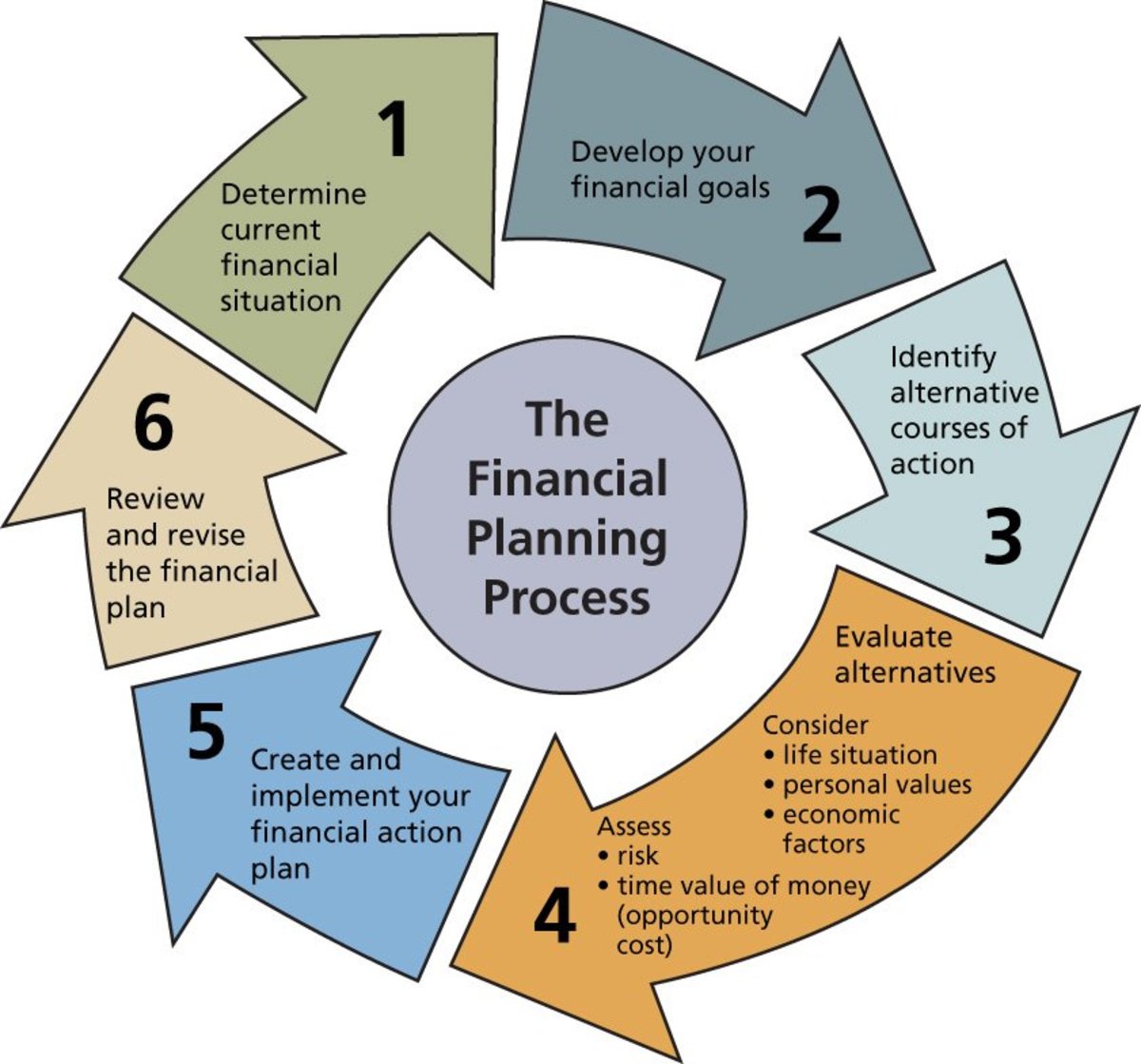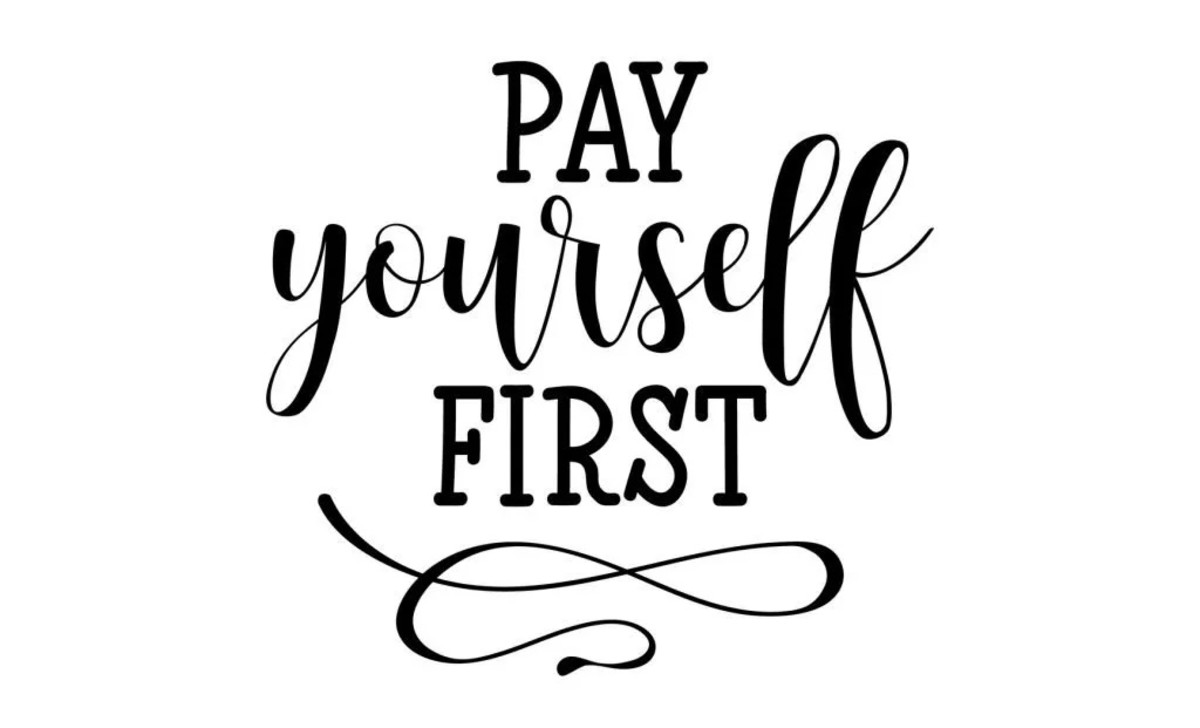Financial Security: Making Sure Your Retirement and Savings are Safe

The Real Meaning of Diversification
You will often here people use the term "diversify" when talking about investing. The concept is very simple with its meaning being basically that you don't want all your eggs in one basket. But what typically happens is that this same person will put their money into a mutual fund thinking that diversification in this sense would be that all their money is not in one single stock. This is NOT diversification.
If you truly want to diversify you need to have your money in various types investments that are totally and completely separate from each other. In this HUB I am going to suggest some investment options that the average person can participate in and try to show you some errors that you can avoid.
Planning for the future is a very serious subject because you and those you love depend upon it. Before we move on let me highlight my favorite investment which I will not address here. The reason I won't address it is because I am going to focus on investments that everyone can participate in. But if you really one to get serious about investments you should consider getting rental property. I have written about rental properties in many HUBS so check them out also.
The Mistake of a Friend
I have some friends, they are older. They are retired and want to preserve their capital which makes sense. There is a small bank in the city that we live that has great customer service. I have had accounts here before and have gone into this bank many times.
There are basically five people that work here and all five of them are extremely nice. The bank is conveniently located, clean and attractive, in fact they've got everything going for them that you would want in a small bank.
The error my friends make is that they have all their money in CD's with this bank. There are two problems with this plan. First of all if the bank were to go under ALL of their money is tied up. Their argument is that it is FDIC insured. Well, true! But do you really want to go through all that paperwork, whatever time it would take, to get ALL your money back? Besides, as I write this interest rates are lower than inflation which means they are loosing money. This is just bad planning because someone is nice.
I have no problem having some money in a very safe and liquid place but search around and get the best rate, even if you have to park your money in a place where the customer service is not as friendly as this place. We are not in a popularity contest when it comes to our money we are preparing for our financial future.
Don't Let the Pundits Scare You
As I write this HUB the stock market has been very weird, Europe is in a mess, China is trying to overtake the US Dollar and all of this has an effect on the stock market. For the average person who is not going to educate themselves, I do not recommend trading. You will probably loose your shirt.
But there is nothing wrong with owning stocks in selective companies. When I say selective I am talking about large and very boring companies that consistently pay dividends and no matter what happens will be in business. Here are three stocks that are huge, everyone buys from them, and they have a history of paying dividends. They are Microsoft, Walmart, and Johnson and Johnson.
You may not have a huge pile of cash to buy stocks in one of these, but many companies have what are called DRIP's. This are automatic purchase programs where you can typically buy as little as $25.00 per month. If you were to go to www.amstock.com you could set up a DRIP with Microsoft (and many other companies) where, according to your budget, you can start buying some stocks.
You may be like me and use Apple products. I have an iMac, iPhone, and iPad but Microsoft is a cash gushing money making machines that is not going out of business anytime soon. While you need to do your own research as there are many such companies that are extraordinarily safe like Microsoft starting an investment account and building over years, allowing dividends to reinvest, is a solid piece of diversification
Emergency Funds
If you listen to Dave Ramsey at all he is very big on emergency funds. I agree with him, but have my emergency fund a little different then he does. Here's what I do. I bought a good safe and had it bolted to the floor in a place in no one would ever find. Most could put in their home, but I have the ability to put in another place.
Since interest rates are so low I don't don't keep my money sitting in a savings account (not real fond of banks anyway). I keep $1,000.00 and $1,000.00 only in cash in this safe. This is "no touch" money and is for an emergency only. Then I accumulate silver and keep it in this safe also. While silver pays no interest or dividends it is extraordinarily undervalued at the time of this writing plus it is VERY liquid. I could, today, take the silver out of the safe and have cash on hand in a matter of hours.
Anyone can buy silver and you can buy it in very small quantities. Virtually every city in America has a business that buys and sells gold and silver. Right now silver is trading at under $30 an ounce and there are 1/2 and 1/4 ounce rounds/bars that you can buy. You can literally start accumulating silver with $10 or less.
Since you and I are not numismatic experts don't start buying government issued collector coins. All you want is silver. You can buy what is called junk silver which is US coins minted prior to 1965 (I believe - I don't buy these), or silver dollars but really just buy silver rounds or bars. These are just chunks of silver. They are very liquid, can go up in value, and if there is ever a problem with the US Dollar or our banks they can be used for barter or liquidated for cash very easily. Whoever you buy from will buy it back from you at the current market rates.
401K and Other Retirment Programs
If your employer offers a retirement program participate in it, assuming of course that there is an incentive. Let's say they match 25% of what you invest. That is free money to you and many employers will match much higher than that.
If there is no matching I would be cautious on investing. Personally, I would prefer investing where I have total control over what I was placing my money in, plus the money is in my name not my employers. Typically, these types of investment are made before you pay taxes. Many people like this because it lowers their current tax liability, however virtually anyone worth their salt will tell you the returns make more sense, long term, investing with after tax dollars.
If you are setting up an IRA set up a ROTH not a Traditional.
Have You Ever Heard of Peer Lending
Want some higher returns? I read a HUB a few days ago mentioning Peer Lending. I had never heard of this before and found it intriguing. There are two major companies one called Prosper and the other Lending Club. I believe that Prosper is bigger, but I liked the way Lending Club operated better.
I opened an account and put the minimum into it ($250) to see how it works. Basically the concept is this. They make loans and investors can fund the loans. I know that sounds scary at first but you can fund a lone with as little as $25.00. Right now the rates ranged from a little over 7% up to around 20%. Obviously the higher the rate the less credit worthy the borrower is.
With my $250 I helped fund 10 loans at $25 each. My return will be around 9% on this investment. That's really good in today's world. What happens if someone defaults (doesn't pay the loan back)? I lose my money. But the chances of all ten defaulting is extraordinarily slim. I've spread my risk out over ten loans which I am safe with. I would not put a lot of money into this, but putting some money that you can afford to lose into can prove profitable.
Here's my strategy:
As stated I put $250 (the minimum) into this. I am going to watch this for about six months and if it looks like it will do well then I will put some more money into it, but I will use my $250.00 as an example. As I get paid back I will eventually have received $25 back through interest and principle returned. Once I receive that $25 back I will place it in a new loan. Now I have 11 loans working for me and I will get $25.00 accumulated a little quicker. As I repeat the process it will be a compounding effect.
How to Choose the Loans to Fund:
I was in lending for ten years so I've approved a lot of loans. You don't want to get greedy and try to get the highest rates. You want your money back and that is the first criteria. Below are what I look at:
- Take credit ratings of A4 to C2 only
- Must be a homeowner
- Total debt less than $25,000
- Debt to Income ratio less that 20%
- Purpose of loan. I prefer home improvements or purchases over debt consolidation
- Length of job: Five or more years
- Credit: No derogatory credit or at least 2 years since derogatory credit
- Percentage of credit lines used: Less than 30%
Summary
Again referring to Dave Ramsey, he suggests putting 15% into retirement savings. I don't disagree. You may not be able to do that immediately, but you can start building up to it. Once you have that as part of your monthly outgo you won't even miss it. The thing is you have to start doing something.
Mutual Funds are expensive. I don't like them. I personally have no money in mutual funds. The real key to building wealth is compounding interest and diversification. If I truly diversify with totally different investment instruments, have a long term mentality (I don't cash in or use the funds), and allow for compound interest (reinvest dividends), you will be amazed where you are in a few years.
One of the greatest resources to having the ability to invest is by getting out of debt. Get those high rate loans paid off and quit borrowing! Your life will totally be changed for ever.








